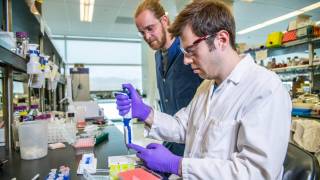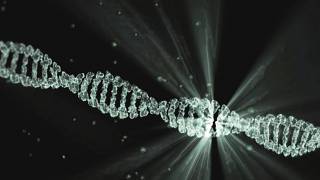Herpes Vaccine Moves Forward

A two-year grant from the National Institute of Allergy and Infectious Diseases (NIAID), part of the National Institutes of Health, has been awarded to NanoBio® Corporation for the development of a vaccine for the prevention of genital herpes.
Currently, there are no approved vaccines to prevent or treat this disease.
Genital herpes is a sexually transmitted disease most commonly caused by the herpes simplex virus-2 (HSV-2). Genital herpes is also associated with an increased risk of HIV acquisition.
Herpes infections are lifelong and are often asymptomatic facilitating the spread of the disease amongst sexual partners, and from mother to child during birth.
The disease is widespread in both developed and underdeveloped countries, and is a global health priority. According to estimates from the Centers for Disease Control and Prevention (CDC), over 24 million people in the United States are infected with HSV-2 and there are 776,000 new infections each year.
Approximately one out of every six people, aged 14 to 49 years, has an HSV-2 infection.
"NanoBio's intranasal vaccine is one of the only vaccine candidates we've studied that has shown efficacy in both the prophylactic and the therapeutic animal models," said Dr. David I. Bernstein, Professor of Pediatrics at Cincinnati Children's Hospital Medical Center.
"Based on our data with this unique approach, we look forward to seeing the intranasal NE vaccine progress to human clinical studies," said Bernstein.
In the prophylactic guinea pig study, the intranasal NE HSV-2 vaccine prevented infection and viral latency in 92 percent of animals vaccinated, versus 8 percent in a no treatment arm.
In a separate therapeutic study, animals with recurrent HSV-2 infection were vaccinated with the intranasal NE vaccine. During the post-vaccination observation period, the NE HSV2 vaccine reduced recurrent lesions and viral shedding by more than 50 percent as compared to animals that received no treatment.
"The Phase II SBIR grant is a testament to the potential of NanoBio's intranasal NE vaccine for genital herpes. The funding enables the next step in the development research process," said Dr. Ali Fattom, Senior Vice President of Vaccine Research and Development, NanoBio.
NanoBio® Corporation is a privately-held biopharmaceutical company focused on developing and commercializing vaccines and anti-infective treatments derived from its patented NanoStat® technology platform. NanoBio is currently developing NE vaccines for several respiratory and sexually transmitted diseases, including RSV, pertussis, pandemic influenza, anthrax, prophylactic and therapeutic HSV-2, and chlamydia.
Our Trust Standards: Medical Advisory Committee


























